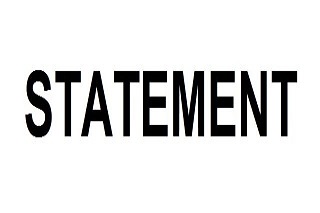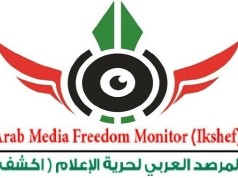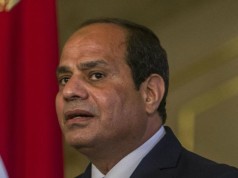
Egyptian media and 4 years of oppression
London – July 2, 2017
As 4 years have passed since the ouster of civilian rule in Egypt by military leaders in July 2013, Egyptian media suffers its worst days amid complete oppression, silencing voices and adopting one-man-show media.
Over the past four years, the Egyptian media has suffered the most from practical practices that have reached the point of killing many journalists and photographers, and repressive legislations that can silence any critical voice or close any free platform.
Some 300 journalists entered Egyptian prisons and detention centers during these 4 years for varying periods in temporary detention, detention and imprisonment. About 100 journalists and photographers have been in jail so far. Some of them have spent about 4 years in prison. Some of them have exceeded the two-year limit of being held in custody under law, haven’t been released, they don’t face serious charges. Some of them are suffering from deadly diseases in their prison, and prison administration refuse to treat them outside prison even on their own expenses. (Hisham Jaafar, Mohsen Radi, Magdi Hussain, for example), and others who are not in prison.
10 journalists were killed by military and police weapons (Ahmed Assem, Ahmed Abdul-Gawwad, Habiba Abdul-Aziz, Mosaab Al-Shami, Mike Dean, Mohammed Al-Deeb, Tamer Abdul-Raouf, Mostafa Doh, Mohamed Helmi and Mayada Ashraf). Their killers have not been punished so far.
TV channels and newspapers are still closed (Misr 25, Al-Hafiz, Al-Shabab, Al-Faraeen, Freedom and justice and Al-Shaab, for example) and programs stopped by authoritarian decisions because of security objections to their hosts, and senior media professionals had to flee Egypt to work from abroad, and despite that, authorities fabricate cases and issue harsh sentences against them in absentia.
Laws that violate the constitution legalizing repression, preventing publishing, silencing voices, imposing total governmental hegemony on the public and private media system, spreading fear among journalists and media professionals and punishing them for practicing their work.
There are dozens of media gags, publishing and travel bans, and thousands of cases of coverage bans, and physical and verbal abuse against journalists and photographers during field coverage.
In the Republic of Fear, which resulted from the coup of July 3, 2013, self-censorship became a general phenomenon in order to avoid prosecution of the security services or administrative sanctions or even losing one’s job. Spying and supporting terrorism charges become ready for any journalist crossing the red lines. Main satellite channels have come under the direct control of security and intelligence agencies. The journalists’ syndicate is allowed to be entered by policemen without judicial permission and arrest journalists from within, and even turn its leader, deputy and secretary-general into a trial for a suspended year.
Under the rule of the military coup, Egypt occupied the 161st position out of 180 countries on the scale of freedom of the world press and became one of the largest prisons of journalists in the world according to reports of international organizations.
Egypt has a constitution that advocates freedom, especially freedom of the press, but they are deliberately inactivated articles by the will of the ruling authority, which considers itself above the constitution. In addition to the “wasted” texts that safeguard public freedoms and protect them from the manipulation of the executive power, and which are supposed to apply to all Egyptians including journalists, ( articles 54, 55 and 57), the Constitution contains provisions for the protection of freedom of expression (65) and the free flow of information, the accountability of those who obstruct it (68) and provisions for the protection of press freedom that are openly violated. Article 71 states that “It is prohibited to censor, confiscate, suspend or shut down Egyptian newspapers and media outlets in any way. Exception may be made for limited censorship in time of war or general mobilization. No custodial sanction shall be imposed for crimes committed by way of publication or the public nature thereof. Punishments for crimes connected with incitement to violence or discrimination amongst citizens, or impugning the honor of individuals are specified by law.”
Despite that, there are many newspapers and channels closed by administrative decisions, and many of them have been suspended and confiscated over the past 4 years, and there are about 100 imprisoned journalists because of publishing and expression.
And article 72 states that” Independence of press institutions The state shall ensure the independence of all press institutions and owned media outlets, in a way that ensures their neutrality and expressing all opinions, political and intellectual trends and social interests; and guarantees equality and equal opportunity in addressing public opinion.” What is happening confirms that we are in front of the one voice press that does not allow opponents of the regime to express their opinion as appropriate.
Media councils, which the constitution guarantees its independence in articles 211, 212 and 213, which are the Supreme Council of Information, the National Press Authority and the National Media Authority, were subjected to governmental hegemony in violation of these provisions. This has happened when the Egyptian Parliament, which is dominated by pro-government lawmakers, issued a law on institutional organization that gives the executive authority the right to appoint the heads and many members of those bodies which are presumed in accordance with the constitutional provisions to be independent.
The Egyptian press is living its most difficult moments in the modern era under the July 3 regime, and it is suffering day after day, with more legislative and administrative restrictions, security crackdowns, closing more media outlets, websites and social networking pages, blocking more of them under the pretexts of countering terrorism. Moreover, the Egyptian press, under the conditions of economic stagnation experienced by Egypt for 4 years, has been forced to lay off large numbers of its employees because it can not cope with the costs of operating with the decline in revenues, whether sales or advertising.
Ikshef calls upon all those concerned with freedom of press in the world to support press freedom in Egypt, move to release jailed journalists, return of closed newspapers and TV channels, prevent prosecuting journalists and cameramen and bring aggressors to justice.




